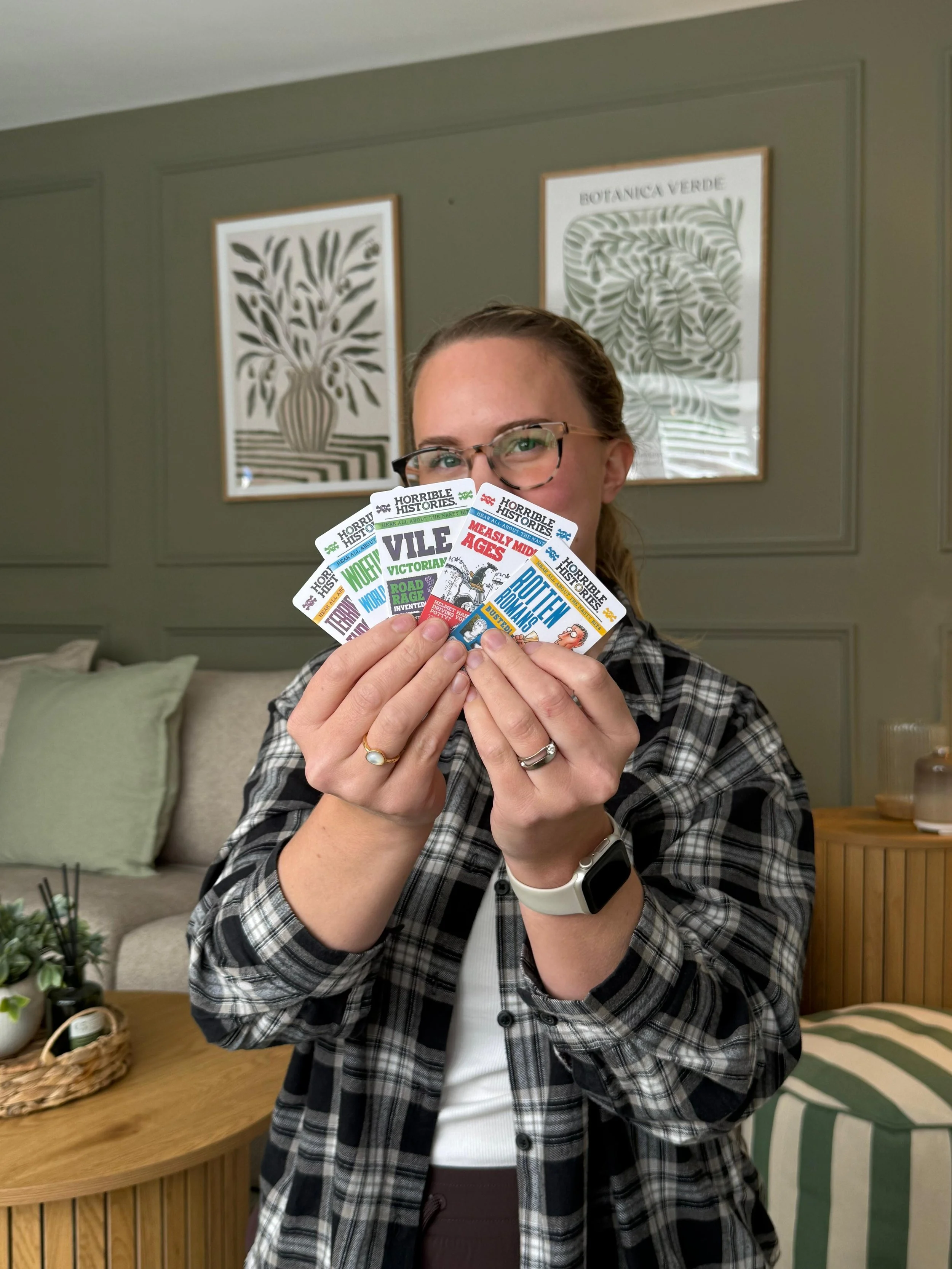Your full guide to educational Yoto cards as a Home Ed parent
When I first got a Yoto for the kids, I thought, “Okay, this is cute for stories and quiet time.” But very quickly it became so much more. It’s literally a mini learning library we carry around, use on the road, and lean on for calm moments. As a Home Ed parent, it’s been a gem for mixing learning with fun, all without screens. Here’s which educational cards I trust, and tips to stretch every card’s value.
Why Yoto Cards are brilliant for education
Before I dive into specific cards, here are the reasons I’ve leaned on Yoto as part of our home education toolkit:
It’s screen-free learning: Kids get audio content without the pull of videos or distractions.
The Yoto minis are so portable. My children carry their Yoto Mini themselves it’s great for learning on the go.
Because there is such a variety of cards, the Yoto grows with them.
We use it as a regulation tool on overstimulating days out. We switch it on quietly (or with headphones) so they have something soothing to fall back on.
It supports the curriculum. Many cards explain topics like the water cycle, volcanoes, electricity, earthquakes in child-friendly, fact-packed ways.
Shared learning - we talk about what they hear, ask questions, and sometimes pause to expand or experiment.
My top recommendations for educational Yoto cards
Yoto never have discounts but they’ve given me a 10% off code (minimum spend £59.99) and you can grab the Yoto Mini here.
BrainBots: Our Planet - covers climates, seasons, oceans, volcanoes, earthquakes, and more. Brilliant for Earth science modules.
BrainBots: The Human Body - explains organs, systems, and senses. Great for biology lessons.
BrainBots: Science Fair - explores electricity, forces, magnets, and evolution.
BrainBots: Biggest Ideas - covers inventors and breakthroughs (ice-cream maker, paper, Braille, etc.)
Horrible Histories Collection Vol.1 - combines history with humour and the kids love this one. And to be honest it brings back major nostalgia for me!
In addition, here are some more cards we like to rotate:
BrainBots - Wildlife Defenders explores endangered species and conservation issues.
Earth Explorers follows young explorers across continents with quizzes and facts.
Ladybird Audio Adventures - rainforests is immersive and teaches children about ecosystems and animals in the jungle. They have 5 volumes in this series!
How to make the most out of your cards
Rotate them! At the start of month pick a topic and use a specific set of cards that week to build on the kids knowledge.
Pause and discuss - after a card finishes ask your child what they have learnt from it? Is there any questions they have that they’d like answering?
Extend the learning into hands-on experiments! Particularly when listening to ones about the water cycle or for volcanoes you could experiment with baking soda volcanoes!
Join local Facebook or home education groups and swap cards so you don’t always have to buy new ones!
Overall if you’re home schooling or just listening for fun these yoto cards are a great investment. Over time the card library builds out, and suddenly you’ve got a little audio curriculum in your hands.
Let me know which are your favourites in the comments!



